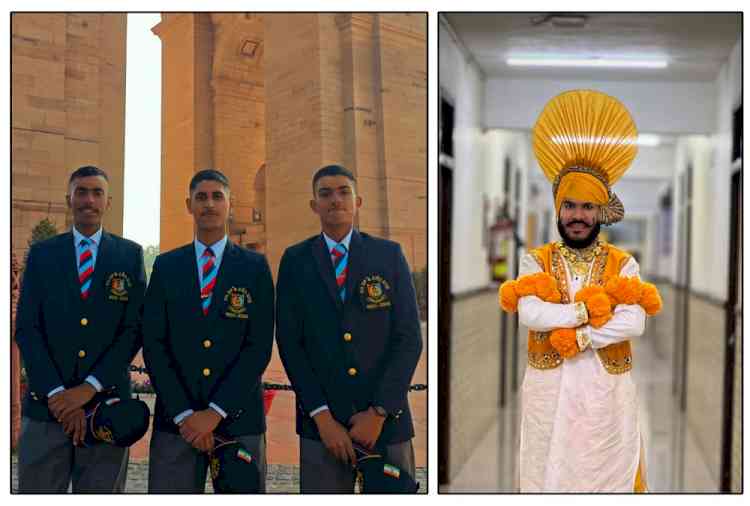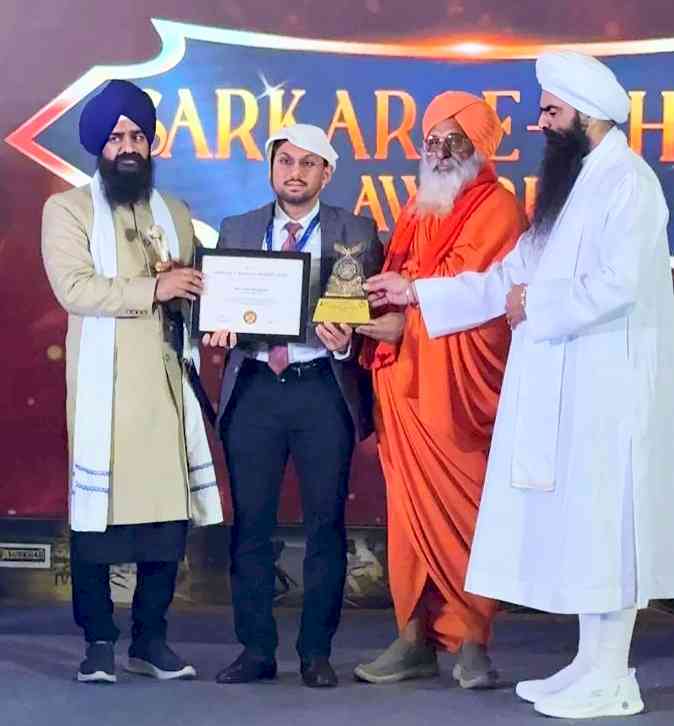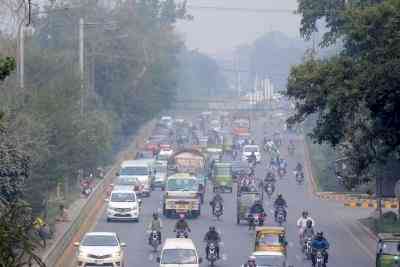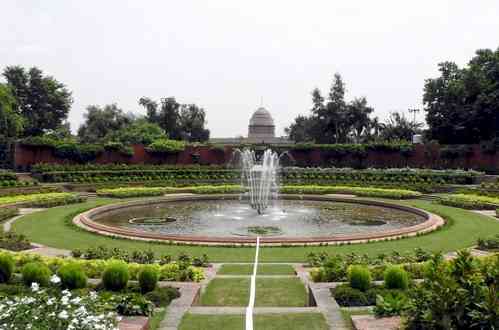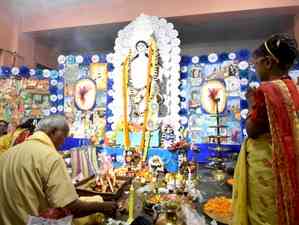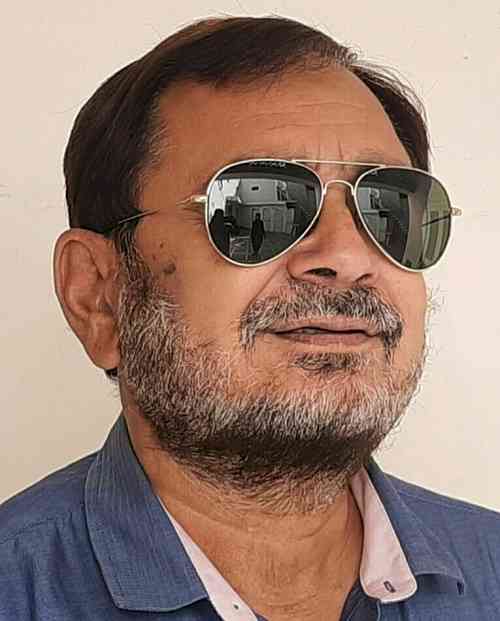One-week DST-SERB Karyrshala on “Immunological Tools and Techniques to detect innate immune responses” begins at Central University of Punjab
The Central University of Punjab, Bathinda, in collaboration with the All India Institute of Medical Sciences, Bathinda, and under the aegis of the Consortium of Higher Educational Institutions of the Bathinda region, organized an inaugural ceremony of a week-long DST-SERB Karyashala, focusing on “Immunological Tools and Techniques to Detect Innate Immune Responses.”
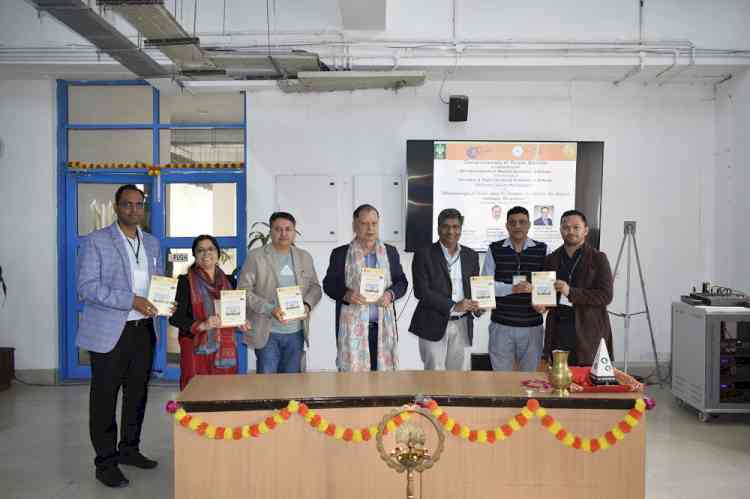
Bathinda, December 6, 2023: The Central University of Punjab, Bathinda, in collaboration with the All India Institute of Medical Sciences, Bathinda, and under the aegis of the Consortium of Higher Educational Institutions of the Bathinda region, organized an inaugural ceremony of a week-long DST-SERB Karyashala, focusing on “Immunological Tools and Techniques to Detect Innate Immune Responses.”
The event was jointly conducted by the Department of Microbiology, CUPB; Department of Zoology, CUPB; and Department of Microbiology, AIIMS, Bathinda, under the patronage of Vice-Chancellor Prof. Raghavendra P. Twari. Dr. D.K. Singh, Executive Director, AIIMS, Bathinda, graced the occasion as the Chief Guest, while Prof. Narinder Mehra, Honorary Emeritus Scientist, ICMR, Former Dean, and National Chair, AIIMS, New Delhi, was the Guest of Honour.
The program commenced with the welcome address by Prof. Anjana Munshi, Director, Research & Development Cell. She expressed her gratitude to the Science and Engineering Research Board (SERB) for sponsoring this workshop under the Accelerate Vigyan Scheme, with the objective to promote high-end scientific research and prepare scientific manpower.
Prof. Monisha Dhiman, Director, IQAC, in introducing the workshop theme, highlighted that this immunology Karyashala aims to provide hands-on training to PG/Ph.D. students in tools and techniques applicable to detect innate immune responses. These are crucial to eliminating pathogens and enhancing the host defense machinery. Prof. Dhiman further added that participants from universities, colleges, and research institutes will be familiarized with details of immune cell culturing, instrumentation, data acquisition, and analysis through expert lectures and experimental sessions.
In his address as the Guest of Honour, Prof. Narinder K Mehra, a distinguished personality with numerous accolades such as FNASc, FIMSA, FNA, FHASc (Hungary), FTWAS (Italy), and Hon FRCP (UK), shared profound insights on the theme "India of 2023 Focus on Science." Prof. Mehra commenced his address by acknowledging the dynamic landscape of scientific advancements and the pivotal role science plays in shaping the destiny of nations. He highlighted that it is imperative for the nation to intensify its focus on scientific endeavors, emphasizing the potential for scientific innovation to drive economic growth, societal progress, and global leadership.
Dr. Nasir Salam, Associate Professor in the Department of Biosciences at Jamia Millia Islamia, Delhi, delivered an invited lecture on "Burden of Vector-Borne Diseases in India." He discussed the role of epidemiology in assessing disease burden and its management.
In his address, Chief Guest Prof. D.K. Singh, the Executive Director of AIIMS, Bathinda, emphasized the critical role of collaborative initiatives like the DST-SERB Karyashala in advancing medical research and fostering innovation. He commended the organizers for their commitment to enhancing scientific capabilities and stressed the importance of continuous learning and adaptation in the rapidly evolving field of immunology. Prof. Singh highlighted the need for interdisciplinary approaches and encouraged the participants to leverage the acquired knowledge for the benefit of society.
On this occasion, Prof. R.K. Wusirika, Dean Incharge Academics, expressed his gratitude to all participants, speakers, and organizers for making the inaugural session a resounding success. He underscored the significance of knowledge exchange and collaboration in academic pursuits. Prof. Wusirika reiterated the university's commitment to supporting such educational initiatives and encouraged the participants to apply the gained insights in their academic and research endeavors. He concluded by expressing optimism about the positive impact the workshop would have on advancing scientific understanding and fostering a culture of continuous learning within the academic community. Towards the end of the inaugural session, Dr. Somesh Baranwal, Head, Department of Microbiology, delivered a formal vote of thanks. Faculty, research scholars and students from different departments of CU Punjab and other HEIs of Bathinda are participating in this workshop.


 City Air News
City Air News 
